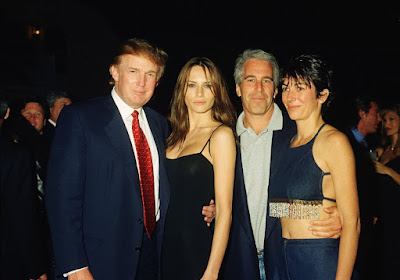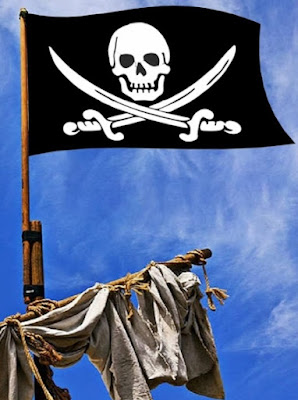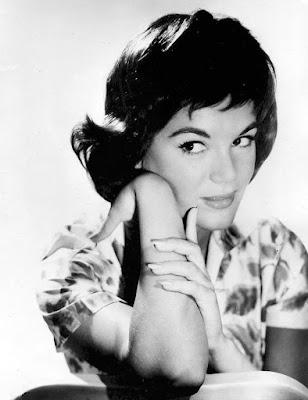Saturday, July 26, 2025
Graphic Grandeur (Dangerous When Wet Edition)
Wednesday, July 23, 2025
Truth Socialites
Below is the dirty laundry.
Saturday, July 19, 2025
Quips and Quotations (Car Hop or Pop Shop Edition)
Thursday, July 17, 2025
Period Pieces
You've read it right here in Shadow of a Doubt (actually in Wikipedia by way of Shadow of a Doubt.) To repeat, today is World Emoji Day. The general reaction to such a holiday?
Feelings are mixed.
Friday, July 11, 2025
Quips and Quotations (Web Extensions Edition)
“You have been my friend. That in itself is a tremendous thing. I wove my webs for you because I liked you. After all, what's a life, anyway? We're born, we live a little while, we die. A spider's life can't help being something of a mess, with all this trapping and eating flies. By helping you, perhaps I was trying to lift up my life a trifle. Heaven knows anyone's life can stand a little of that.”
--E.B. White, Charlotte's Web
Friday, July 4, 2025
Speculator Sports
Cleveland loves it sports teams, and there have been times Cleveland sports teams have loved them back.
 |
Just not always.
The above cartoon by the late Plain Dealer sports artist Dick Dugan is from some time in the 1970s, when I grew up. Both the football Browns and the baseball Indians (today the Guardians) were in a long draught, as well were the newly arrived basketball Cavaliers (with the exception of a "miracle" year when the wins exceeded the losses.) Better (albeit not always permanent) days eventually arrived for all three teams, as well as the profits that come from better days. However, this post concerns itself not with profits per se, but with how a professional sports team manages to stay afloat, sometimes audaciously so, no matter if the days are better, worse, or somewhere in between.
I found out later that not only is it not weird but fairly commonplace. Cleveland's one-size-fits-all approach to professional sports (as well as the occasional rock concert and even more occasional Billy Graham religious revival) was what was unusual, as well as something that could serve as a scapegoat. You see, because football is played only once a week, there's more of a novelty value and thus it becomes easier to fill 80,000 seats. Since less people attend baseball games (because there's more of them), it could seem like you're watching the Great American Pastime in the Grand Canyon. Also, that the Indians were losing many of their games, thus affecting attendance, made the Grand Canyon that much grander (maybe if mules had taken fans to their seats, that would have drummed up interest.) The baseball club was owned by some kind of local consortium, one of its owners also a member of the Cleveland Board of Education, the implication being that keeping the Indians on life support was a another kind of civic duty. The duty got dowdy, and the team was put up for sale. Everyone from City Hall to the local sports radio call-in hosts panicked. Suppose the new owners move the club to a different city?
OK, I don't know if Browns owner Art Modell actually said that, but announcing the team's move did clip the wings of a city that saw itself as a rock'n'roll phoenix rising from the ashes of a burning river. Modell was an out-of-towner but had lived in Cleveland since 1962. Surely in those 33 years you might have thought he had some affection for the place and wouldn't think of moving. In fact, he even made a promise not to move, until he declared the promise "null and void." Modell had his reasons, most of them mercenary, a few of them spiteful. As I said earlier the Browns and the Indians shared the old Municipal Stadium, which as the name implies, was owned by the city, a city that couldn't afford to maintain it. Modell agreed to basically lease the stadium, for $1 a year, and become responsible for its upkeep. He also constructed loge boxes that could be rented to anybody who wants whatever a loge box has to offer (I wouldn't know, I've never been in one.) The money earned from the loge boxes went to Modell, even if the person or persons boxed up were there to watch an Indians game. The Indians objected to this and it's one of the issues that led to them demanding the city or county or state build them a separate stadium. Modell was offered a chance to be part of the new stadium, but he declined, only to watch the ballpark net a whole lot of moolah when the team went to the playoffs and World Series. And of course this made Jacobs Field's own loges desirable to rent. City officials, not wanting Modell to feel too left out of Cleveland's renaissance, offered to finance improvements to the old stadium, but Modell issued a "public moratorium" on such talks. He couldn't very well talk to officials from the city of Cleveland while at the same time talking to officials from the city of Baltimore (which a decade earlier had lost the Colts to Indianapolis), now could he?










.jpg)









